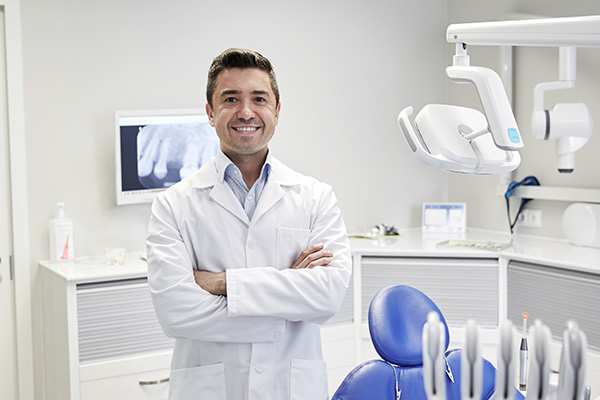 Receding gums leads to gum tissues pulling back from teeth roots, making your teeth appear abnormally large. Teeth roots are protected from acids made by oral bacteria by the gum tissues that cover them, so gum recession leaves them vulnerable to these acids, increasing their risk of decay.
Receding gums leads to gum tissues pulling back from teeth roots, making your teeth appear abnormally large. Teeth roots are protected from acids made by oral bacteria by the gum tissues that cover them, so gum recession leaves them vulnerable to these acids, increasing their risk of decay.
Receding gums can be caused by several things, including periodontal disease, poor brushing and flossing habits, injuries to gum tissues, using a hard toothbrush, and genetics. Regardless of the cause, exposed teeth roots can lead to various problems, like long-looking teeth and teeth falling out of the mouth.
Questions to ask a dentist about receding gums
Patients may notice gum tissues pulling back from the roots of some of their teeth. Here are the answers to questions that they might have:
1. What is periodontal disease?
Periodontal disease is an infection of gum tissues. It is caused by the same bacteria that create acids that decay teeth. These bacteria form plaque, a sticky film that contains acids. Plaque accumulates on teeth, and it hardens into tartar if left there for a few days. Tartar accumulates at the base of teeth and can make its way into gum pockets, infecting the tissues there. The immune system sends antibodies to the area to combat the infection, leading to the inflammation that characterizes gum disease.
Gum disease has two main stages. Gingivitis is the first stage and comes with symptoms like tender gums, gum recession, and gums that bleed easily. It can be reversed with a renewed commitment to dental hygiene and teeth cleanings to eliminate tartar deposits.
Periodontitis is the second stage of gum disease, and there is no way to reverse it. A dentist can help slow down the infection's progression with medication and treatments like root scaling and planing, gum grafts, and bone grafts. Left untreated, periodontitis can lead to teeth falling out of the mouth. It is the leading cause of adult tooth loss.
2. What are the symptoms of gum disease?
Gum disease can be challenging to detect because symptoms are not always noticeable during the early stages. Symptoms of gum disease include swollen gums, discolored gums, bleeding gums, gum recession, loose teeth, bad breath, pus coming from the base of teeth, teeth sensitivity, spaces forming between teeth, and tooth loss.
3. What are the risks of leaving periodontal disease untreated?
Failing to get appropriate treatments for gum disease can lead to the inability to reverse the condition. Once gum disease advances to periodontitis, it causes severe damage to the bone and tissue structures that hold the teeth in place. It can lead to teeth falling out of the mouth and permanent changes to these structures. Periodontal disease has been linked to serious health issues like diabetes, rheumatoid arthritis, and cardiovascular disease.
Get treatment for gum disease
Are you noticing symptoms of gum disease, like receding gums? Call or visit our Bellevue clinic to set up an appointment with our dentist.
Request an appointment or call Artisan Dental Bellevue at 425-454-2005 for an appointment in our Bellevue office.
Related Posts
Concerned about gum recession? Read on to learn the commonality of receding gums and how they can be treated and prevented. Receding gums are common among individuals with periodontal disease. However, there are different levels of gum recession, and the severity of the concerns depends on how far the gums have receded.Receding gums can become…
Gums deterioration exposes the tissue that protects the teeth's roots. Receding gums may also occur around an improperly placed tooth. When the origins of the teeth become exposed due to receding gums, the teeth are more susceptible to decay, infection, and loss. People may halt or reverse the progression of gum recession if they seek…
Receding gums occur as a result of periodontitis (gum disease). Early intervention for gum disease can minimize the invasiveness of treatment, and many patients are able to restore the health of their gums and teeth through improvements in their oral care routine, non-invasive dental treatments, and at-home remedies.At-home remedies do not reverse receding gums, but…









